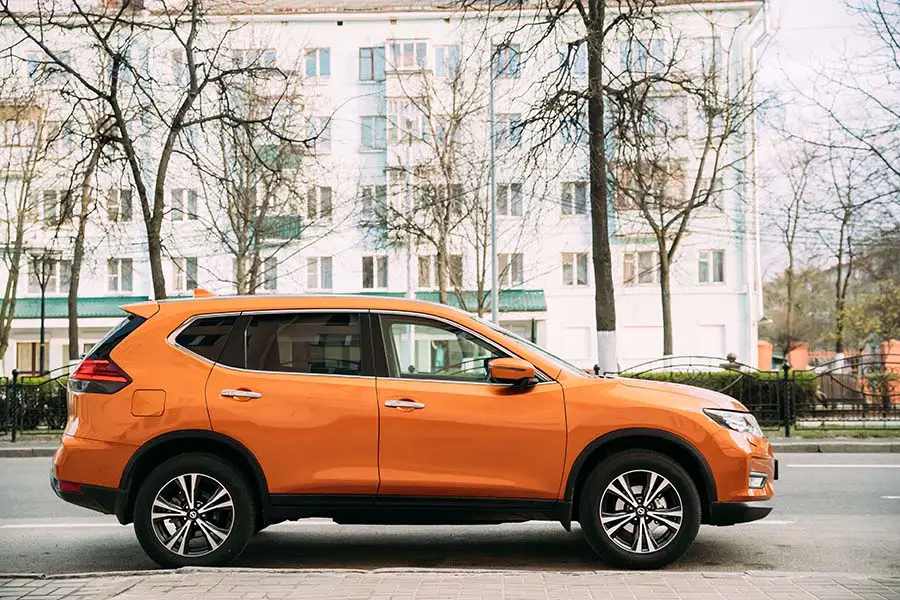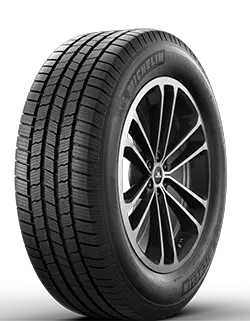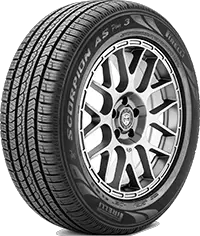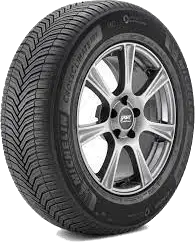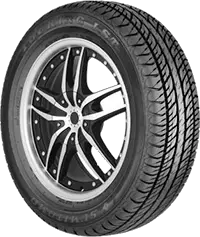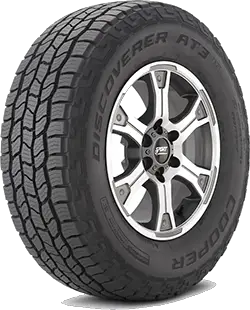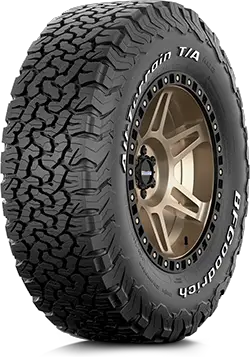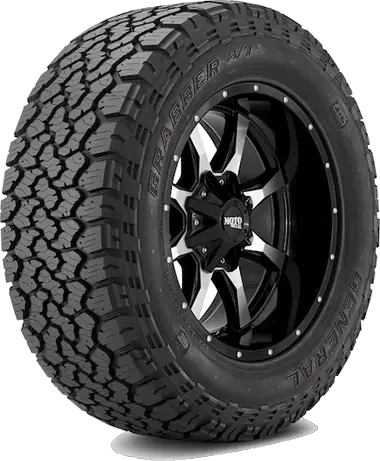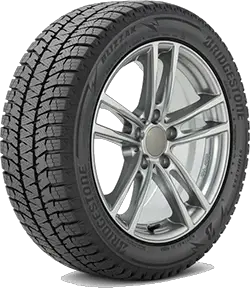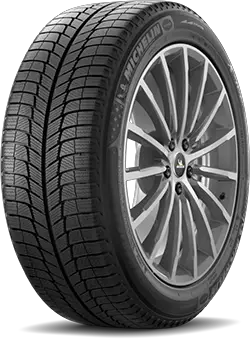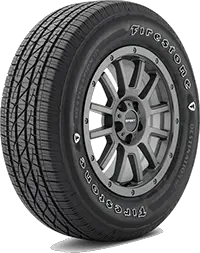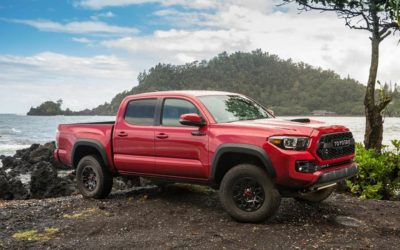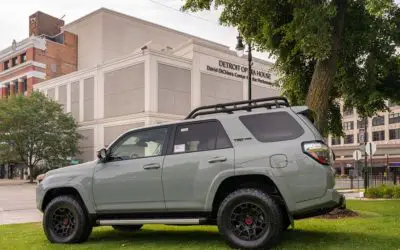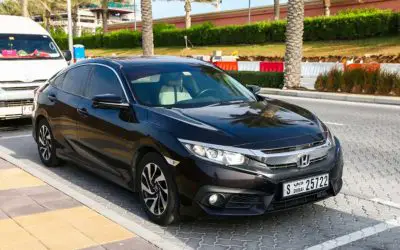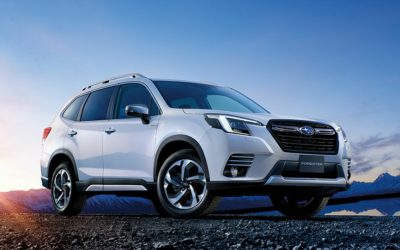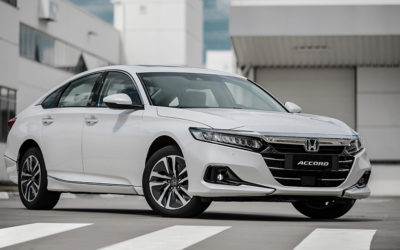Top-rated tires for SUV must be what every owner of this car is interested in. Among multiple choices confusing everyone, which brand is good? Which product line will be suitable for my car?
Do not worry. This article will help you find the answer to this problem. Please scroll down and get the answer!
The 10 Best Tires For SUV & Crossover
| Tires Name | Main Feature |
|---|---|
| 1. Michelin Defender LTX M/S | Best Highway Tire |
| 2. Pirelli Scorpion AS Plus 3 | Best For All-Season |
| 3. Michelin CrossClimate SUV | Best For Touring All-Season |
| 4. Sumitomo Touring LS H | Best For Budget All-Season |
| 5. Cooper Discoverer AT3 4S | Best For All Terrains |
| 6. BFGoodrich All-Terrain T/A KO2 | Best For Off Road |
| 7. General Grabber AT/X | Best For All-Terrain |
| 8. Bridgestone Blizzak WS90 | Best For Winter |
| 9. Michelin Latitude X-Ice Xi3 | Best for Icy Terrain |
| 10. Firestone Destination LE3 | Best Mid-priced Tire |
Best All-Weather Tires For SUV
1. Michelin Defender LTX M/S
| Sizes Available: 13” to 20” Speed Rating: T, H Mileage Warranty: 70000 mile Rim Width Range: 5.5” to 11” Overall Diameter: 22.6” to 30” Revs Per Mile: 699 to 913 Max Load Capacity: 1,356 lbs Tread Depth: 10/32” Max Inflation Pressure: 44 ps |
|
(11) |
|
According to Consumer Reports, the Michelin Defender is one of three good quality tires tested in 2015. It shows effective “resistance” in different weather conditions.
In the evaluation tests, its speed holds the top position among All-Season and Performance All-Season products with a figure of up to 84 km/h. On the best Michelin tires for SUV, its fuel economy, traction, and controllability will surprise many car devotees.
2. Pirelli Scorpion AS Plus 3
| Category: All Season Warranty: 70,000 Max Speed: 149 mph (V Rated) Load Range: SL Load Index: 99 (1709 lbs) Sizes Available: 17″, 18″, 19″, 20″, 22″ |
|
(7) |
|
Pirelli is one of the top luxury brands you can easily find at any motorsports circuit globally. It is always the first choice of many super sports car manufacturers, high-end car manufacturers such as Ferrari, Aston Martin, Lamborghini, Audi, Mclaren, Bentley, etc.
Pirelli Scorpion AS Plus 3 is a road tire, ideal for SUVs and crossovers. Its strengths are its skid resistance, wet braking ability, and overall stability, better than even large SUVs.
Low rolling resistance and mass ensure low fuel consumption and CO2 emissions. The optimized chain of spikes also helps it limit noise when driving.
3. Michelin CrossClimate SUV
| Sizes Available: 13” to 20” Speed Rating: Y, W Mileage Warranty: 50000 mile Rim Width Range: 5.5” to 10.5” Overall Diameter: 27.1” to 30.9” Revs Per Mile: 673 to 774 Max Load Capacity: 1,984 lbs Tread Depth: 9/32” Max Inflation Pressure: 51 psi |
|
| No Review Yet | |
Used on many famous models, other Michelin representatives also demonstrate their formidable strength in this segment. Its score on Tire Rack is 4.5 out of 5 stars.
In fact, CrossClimate also possesses strong traction for easy, comfortable movement in the winter, especially when going through snow. This tire is extremely popular with sport utility vehicles with a price tag of less than $200.
Many car owners of Audi Q5, Toyota RAV4, Volkswagen Touareg, etc., have not fully praised this product line for its smoothness, quietness, and ability to adapt to all climates, especially Particularly good performance in wet and steep conditions.
4. Sumitomo Touring LS H
| Category: All Season Warranty: No Max Speed: 118 mph (T Rated) Load Range: SL Load Index: 92 (1389 lbs) Sizes Available: 15″, 16″, 17″ |
|
With a long history, Sumitomo Rubber Industries is one of the leaders in the technology of high-performance ones for cars, trucks, SUVs, and crossovers.
The car can easily overcome rough terrain with a reverse tire design and strong side rubber material. Nevertheless, the large tire grooves with good drainage and the cutting angle at the side of the tire help the tank increase friction and grip the terrain easier.
This version will have an active antioxidant that penetrates from the inside out to protect the tread when in operation. This protection mechanism helps maintain the tire’s durability against harmful effects such as ultraviolet rays and prolongs the life of the product.
In addition, Sumitomo also uses silica compounds to help save fuel for the vehicle and increase braking efficiency, increasing traction when traveling in wet conditions.
The large tire tread design combined with the maximum drainage side grooves helps the Touring LS H tire increase grip on wet and rough terrain, creating a smooth feeling for the occupants.
However, there are also some small limitations as they are quite hard and make a lot of noise during transportation.
Best All-Terrain tires for SUV
5. Cooper Discoverer AT3 4S
| Sizes Available: 15” to 20” Speed Rating: T Mileage Warranty: 65000 miles Rim Width Range: 6” to 9.5” Overall Diameter: 27.68” to 32.64” Revs Per Mile: 634 to 751 Max Load Capacity: 2,833 lbs Tread Depth: 14/32” Max Inflation Pressure: 44 psi |
|
Among the products launched in the summer of 2015, Cooper Discoverer A/T3 received much attention. The silica content in the composition makes it stronger with high shear and abrasion resistance.
Cooper’s advantage is the ability to self-clean from dirt, grip the road and operate on any terrain. Its service life is not less than 80 thousand km, so you can rest assured to use it for a long time.
AT3 4S is the ideal choice for vehicles such as crossovers, large SUVs, sedans, and light trucks because it is suitable for traveling on highways into rough terrain.
However, like many other All-Terrain versions, it makes quite a bit of noise. If you are sensitive to this, be aware of it.
6. BFGoodrich All-Terrain T/A KO2
| Sizes Available: 15” to 20” Speed Rating: R, S, Q, T Mileage Warranty: 50000 miles Rim Width Range: 5.5” to 11” Overall Diameter: 27” to 36.5” Revs Per Mile: 569 to 751 Max Load Capacity: 2,755 lbs Tread Depth: 15/32” Max Inflation Pressure: 50 psi |
|
(6) |
|
BFGoodrich All-Terrain KO2 has optimized designs down to the smallest detail. This tired line has made BFGoodrich famous since 1973 and gave birth to the term All-Terrain.
It uses CoreGard technology for off-road racing tires. This technology creates a rubber with a special composition with a strong bonding ability, resistant to damaging effects on the product surface.
At the same time, its floral design also helps to increase the contact area and thicker of the tire shoulder. This design style doubles the wear time of older versions and helps it reduce the cutting impact of crushed stone on the road by up to 20% compared to competitors.
7. General Grabber AT/X
| Type: All-terrain Size: 14″ to 20″ Construction: Radial Speed Index: H, V Mileage Warranty: 50,000 miles |
|
(4) |
|
General Grabber is also a prominent name on this list to make your journey more enjoyable. It is suitable for SUVs, pickups, and off-road vehicles with excellent traction.
The optimal technology of Grabber AT/X is practical: the spike design helps it grip the road more flexibly in all-terrain conditions. This product of General is always stable and easy to control in each situation.
Best Winter Tires For SUV
8. Bridgestone Blizzak WS90
| Sizes Available: 14” to 20” Speed Rating: Q, H, V, W, Y Mileage Warranty: N/A Rim Width Range: 5” to 10” Overall Diameter: 23” to 28.3” Revs Per Mile: 736 to 905 Max Load Capacity: 1,653 lbs Tread Depth: 11/32” Max Inflation Pressure: 44 psi |
|
(5) |
|
Although manufactured in many different countries, Bridgestone Blizzak still meets Japanese quality standards. The Bridgestone stands out for its durability and fuel economy, especially on bad weather days.
With modern structural layers, Michelin car tires ensure smoothness and grip when operating and give a long life, even when going offroad frequently.
The smooth feeling when driving helps the driver easily handle steering, perform turning, steering, and firmly support braking. Its price is only in the mid-range so that any customer can buy it.
However, this is also a drawback of it. There are few breakthroughs because of Bridgestone’s target audience of mid-range customers. It is durable but quite noisy and stiff.
9. Michelin Latitude X-Ice Xi3
| Category: Winter Warranty: 40,000 miles Max Speed: 118 mph (T Rated) Load Range: XL Load Index: 86 (1168 lbs) Sizes Available: 14″, 15″, 16″, 17″, 18″, 19″ |
|
(6) |
|
Michelin Latitude X-Ice Xi3 is a product of the Latitude line, a tired line designed by Michelin specifically for SUVs and Crossovers. This version impresses with its powerful drivability and outstanding level of safety.
With a structure of nylon fibers and polymer rubber fibers, X-Ice Xi3 is not deformed under the impact of friction, temperature, and increased contact surface when cornering.
Besides, the auxiliary tread grooves of different sizes help minimize the spike block’s deformation, improving the rolling resistance.
Best SUV Highway Tire
10. Firestone Destination LE3
| Category: All Season Warranty: 70,000 miles Max Speed: 130 mph (H Rated) Load Range: SL Load Index: 97 (1609 lbs) Sizes Available: 15″, 16″, 17″, 18″, 19″, 20″, 22″ |
|
(7) |
|
Firestone car tyres improve when operating; through design innovations such as the integrated silica tire compound. These design choices allow for improved cornering and overall handling on dry roads. The addition of cutouts on each tire enhances all-weather grip.
Destination LE3 reduces rolling resistance compared to conventional ones, resulting in a cost-effective, fuel-efficient carrier tire. Seasoned shoulders and sidewalls greatly reduce scratches when rocks and other materials are impacted.
What Kind of SUV Tires Should I Buy?
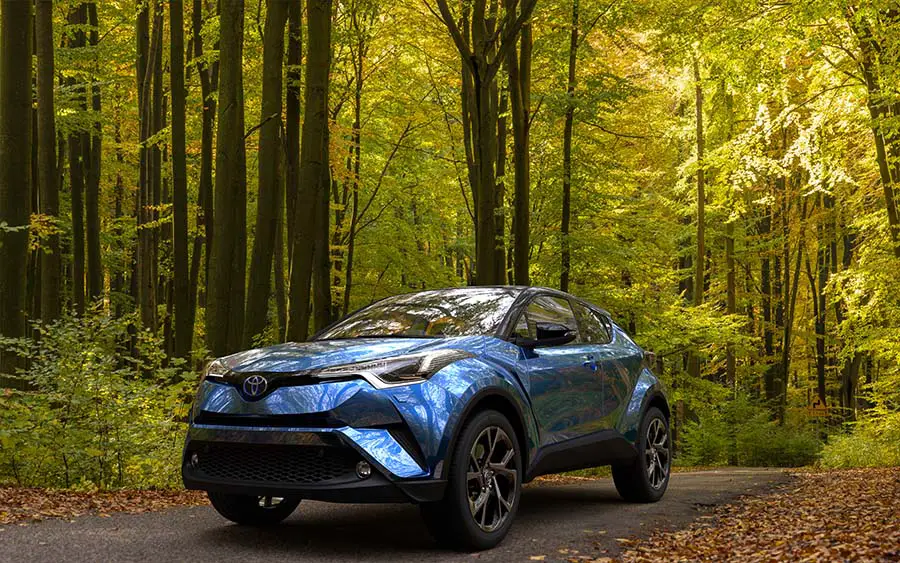
Before we get into the breakdown of this problem, we want to remind you that whichever one you buy, the wheel and tire sizes should be the same. For example, if your wheels are 17 inches, look for a tire that is also 17 inches in diameter.
This similarity helps to ensure that your vehicle can move in the best state and safest. If you don’t know its size, the numbers on the car or the manufacturer’s manual can help you.
Best All-Season Tire For SUV
If you are looking for an SUV-specific product to complete the luxurious look, save fuel, and perform well at all times of the year, this is a perfect choice.
While this balance varies from brand to brand, essentially, all of these products share some of the same features. They have the ideal tread size and shape for light snow and offer great grip on wet and dry roads.
The narrow sipe tread design cuts through the tread for increased grip on wet or icy roads. This style also helps it limit noise, bringing relaxation to pickup trucks, SUVs, and crossovers.
The all-seasons type works well on dry and slippery roads in warm climates. However, it does not bring much excitement to the sport, and the steering response is extremely responsive because there is no maximum grip.
In addition, these models are perfectly suited to cold weather but will not achieve optimal performance when driving on harsh roads such as deep snow, floods, or icy roads.
Performance SUV-Tires
Choosing summer tires for drivers in hot weather areas like the South will be optimal. When all-season models became popular, they often moved them “hidden” under the new cover of high-performance ones.
Their noticeable features are the veins divided into large blocks to increase the friction area with the road surface and drainage ditches. One plus for this group is the very good steering, cornering, and braking performance.
This kind is the ideal choice for those who love speed and flexibility. However, the large veins are also a minus point because it makes a lot of noise, the grip is not high when it rains, and it is very poor if covered with snow.
Best Winter Tires For SUV
The rubber compound in winter tires contributes to better softness retainment in low temperatures than the summer ones. In addition, winter tires support optimal performance in severe cold conditions due to deeper cutouts.
Special markings can identify these tires, such as the “M+S” or 3PMSF logo. “M+S” is a mark that indicates non-performance-testing tires. Thus, no guarantee of performance for this kind of tire.
In contrast, tires marked 3PMSF (3 Peak Mountain Snowflake) have undergone regulatory testing certification to ensure the proper performance level in winter conditions.
All-Terrain SUV Tires
Off-road tires, also known as all-terrain tires, are specially designed to help the vehicle move easily on bad and difficult terrain such as rough roads, bends, passes, streams, and arcs. Muddy roads, etc.
Thanks to the hard rubber material, and wide surface, this product line is anti-slip on rough terrains and grips well, even on weak roads such as mud.
Wheels drain well thanks to wide, deep grooves and hard, well-spaced treads. This feature also minimizes the amount of mud on the car, making it easy to clean the tires. Thus, they are ideal for adventurous drivers who love to conquer rough terrain.
Best Budget SUV All-Season Tires
Cheap products are always attractive to customers, but price should not be the key factor when choosing tires. Cheap models often have poor durability and are easy to slip and wear. Therefore, you will face many repairs or replacement bills if you choose them.
But if you don’t have a thick wallet, mid-range brands are also something that you can consider.
FAQs:
What’s The Best Brand Of Tires For An SUV?
SUV tires have a wide selection, from popular to high-quality products. No matter which product you choose, the most important factor to pay attention to is the car’s performance.
Priority should be given to high-quality ones, the right size for your vehicle. It must have many modern features to keep your vehicle running in top condition and within your existing budget.
It is difficult to say which names are the best tires for SUV all-season because it depends on many factors. However, look for tire brands with a reputation for quality that experts and users have verified to avoid buying a bad product at an expensive price.
What Is My SUV’s Tire Size?
For comparison, there is not much difference between the tire sizes of SUVs and light trucks or passenger cars. Looking at the right side of today’s tire models, we can easily see the parameters in the form: 245/65R17. In there:
245 – Tire width. It is the width of the contact surface between the tire and the road surface, measured by the distance from one sidewall to its other sidewall (unit: mm).
65 – Ratio of the height of the tire wall to the width of the tire surface: calculated by the ratio of thickness/width. In the example above, the thickness is 65% of its width (245)
R – Tire structure: The most common tires on cars have an R (Radial) structure. In addition, tires also have other letters such as B, D, or E but are now very rare on the market.
17 – Wheel diameter: Only one wheel size can be used for each type of tire. Number 17 corresponds to a wheel diameter of 17 inches.
How Often Should I Rotate My SUV’s Tires?
Maintaining tire rotation contributes to prolonging tire life, along with vehicle safety, without any difficulties in mechanic operation. Evenly worn tires will have a longer service life than “deviated” worn ones.
Thus, according to experts, drivers should periodically check and rotate their tires when the mileage reaches about 7,000 – 10,000 km at reputable centers. Don’t forget to combine it with tire balancing and checking wheel angles.
However, the tires that have been patched often should be left behind; please order the best type for the front two wheels.
Are Larger Or Smaller Tires Better For My SUV?
Larger tires help the car absorb potholes on the road better, making for a smoother and more comfortable driving experience. It looks cool, but it doesn’t feel good to handle.
First, large tires will create difficult mechanics when cornering, requiring more effort to control the car on the right track. Moreover, larger ones might be the main cause of poor braking performance and unimpressive accelerating ability. Besides, the rear fork undergoes an unstable experience due to more excess load.
Small tires contribute to better handling. However, they do not respond well to large-horsepower cars. They have extremely good grips to adapt acceleration and braking ability. Moreover, prevent the car from falling out of the bend due to centrifugal force resistance.
However, they cannot meet the durability because when it is too small to bear the vehicle’s weight and the driver, it will wear out very quickly during operation.
The most reliable place is the car’s manual, or you can google the car’s parameters. You can look at the parameter stamp, usually attached to the rear grip, to see the rim size information, then attach the equivalent tire.
What Is My SUV’s Tire Pressure?
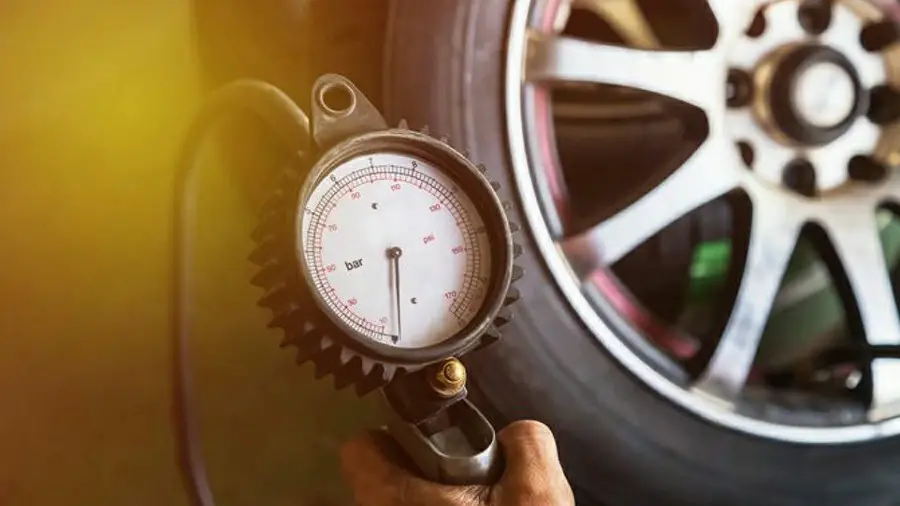
Tire pressure is the pressure of air compressed inside it, with the most common measurement unit is 1 Kg/cm2, PSI, KPa, or Bar. In there:
- 1 Kg/cm2 = 14.2 PSI
- 1 PSI (Pound per square inch) = 6,895 KPa.
- 1 KPa = 0.01 Bar.
Models with four seats or more such as Hatchback, Sedan, MPV, or small pickup trucks, have a standard pressure of 27 – 32 PSI; some can go up to 40 PSI. For full-size pickups or 7-seater SUVs, it can be larger than 4 – 8 PSI.
If a wheel is inflated with the right tire pressure, it will create the right amount of friction from the wheel to the road surface. It helps the car to operate smoothly, with stable cornering ability, good brake support, and maximum fuel economy.
Stable pressure also smooths tire wear and increases wheel life. If the wheel is too young, the friction force is large with the surface, creating a deformed surface, maybe deformed, the surface is concave or uneven to reduce the service life.
Can I Use SUV Tires On A Car?
According to experts, when choosing to buy tires, buyers should pay attention to factors such as tire life, new size, speed ratio, and the characteristics of the new tire to compare with the purpose and conditions for using your car.
With improvements in production technology today, one tire model can meet the needs of different vehicles such as passenger coupes or sedans. They have high durability and traction when off-road vehicles and operate well in dusty and muddy road conditions.
However, according to the manufacturer’s recommendations, choosing is not always the best option but also depends on your needs and driving habits.
Conclusion
Each brand has its pros and cons relevant to multiple purposes. Therefore, you should consider many factors to choose the safest and most quality product.
We hope that the information we have compiled above will be useful to you. Wishing you safe travels.

